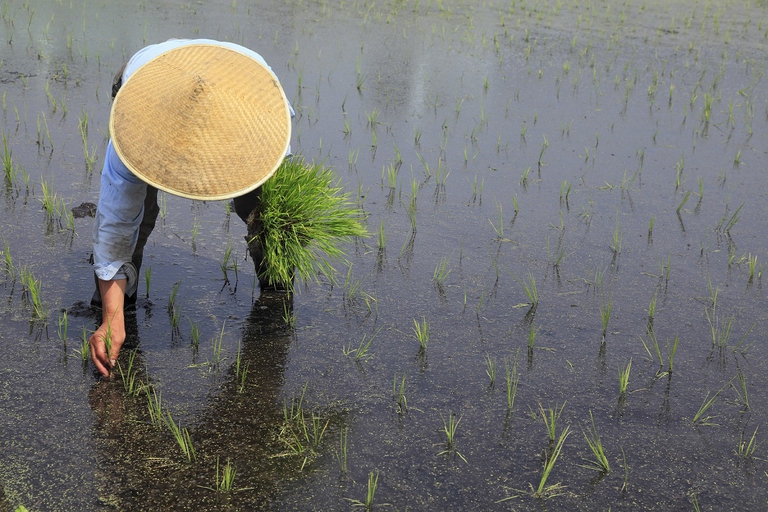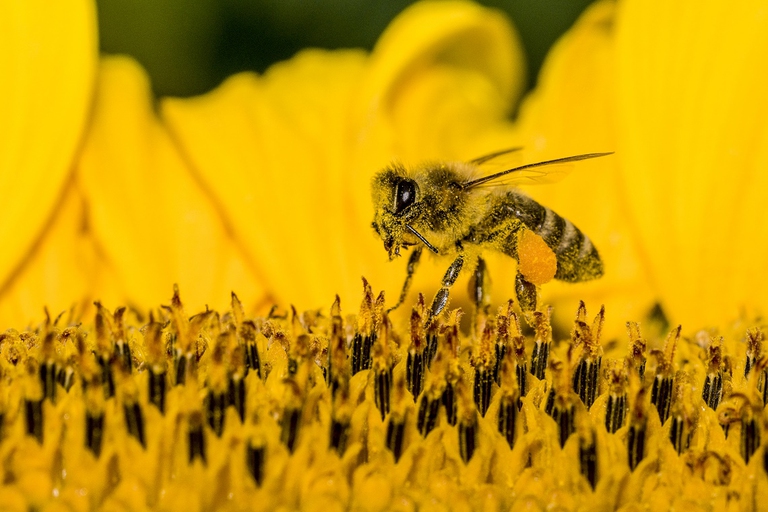
After a landslide led to twelve deaths on the island of Ischia, questions have been raised about the impacts of illegal building, tourism, and climate change.
La Giornata mondiale dell’alimentazione 2016 è dedicata al terribile impatto dei cambiamenti climatici sulla nostra sicurezza alimentare.
According to the Gaya theory, formulated by scientists James Lovelock and Lynn Margulis, our planet (Gaya, the personification of Earth in the Greek mythology) is a living, interconnected being that is able to self-regulate. This is a hypothesis that could be considered as extreme, but the fact that there’s a global natural balance is undeniable. Increasing human-related activities have altered this sophisticated yet fragile balance, and consequences are catastrophic.
Global warming may be the greatest threat our species has to face to survive. Along with extreme weather events becoming more intense, climate change could wipe out the food from our table, while modifying the yield and quality of numerous products over the next decades. Agriculture is victim and responsible of this phenomenon at the same time. In fact, it is responsible for 14 per cent of total greenhouse gas emissions. The most polluting industry is animal farming, which generates more emissions than the entire transportation sector. According to the Food and Agriculture Organisation of the United Nations (FAO), cattle contribute to nearly two thirds of agriculture’s greenhouse gas emissions and to 78 per cent of methane emissions.
Bearing all these factors in mind, it’s fundamental to adapt food and agricultural systems to the negative effects of climate change and make them more resistant, productive and sustainable. Agriculture must take a step backwards and return to be sustainable by using natural resources wisely. World Food Day is celebrated on 16 October and was established by FAO in 1981. The 2016 edition is dedicated to the relationship between food and agriculture, under the motto “Climate is changing. Food and agriculture must too”. The official ceremony takes place on 14 October at FAO headquarters.
Global warming and human-related activities also threaten the very survival of bees. So here’s exemplified the Gaya theory. The extinction of bees would trigger a knock-on effect that would affect us. Our future is linked to that of bees because these pollinators play an essential role for ecosystems. They help flowers expand their range and reproduce, contributing to food security. More than two thirds of cultivations used for human nutrition – making up 90 per cent of our food supply – are pollinated by bees, whose extinction would end the agricultural world as we know it today.
A massive, rapid change is essential and we’re convinced that each and every of us can do it. We can combat climate change by modifying our daily habits, such as reducing our meat consumption, favouring local, seasonal fruit and vegetables, cutting waste, and recycling. The FAO, in occasion of World Food Day, has drawn up a list of virtuous climate actions we can take to conserve natural resources. The organisation also encourages choosing four actions, putting them in practice and sharing the experience with the hashtag #WFD2016.
Siamo anche su WhatsApp. Segui il canale ufficiale LifeGate per restare aggiornata, aggiornato sulle ultime notizie e sulle nostre attività.
![]()
Quest'opera è distribuita con Licenza Creative Commons Attribuzione - Non commerciale - Non opere derivate 4.0 Internazionale.
After a landslide led to twelve deaths on the island of Ischia, questions have been raised about the impacts of illegal building, tourism, and climate change.
Not much snow, peaks of 19 degrees Celsius in Norway and even 28 degrees in France: official data confirms the anomalously high temperatures of this past winter.
Ocean warming has risen to record highs over the last five years: just in 2019 the heat released into the world’s oceans was equivalent to that of 5-6 atomic bombs per second. The culprit, no doubt, is climate change.
What did Greta Thunberg tell participants at the 2020 World Economic Forum in Davos? Once again, the Swedish activist underlined the total lack of concrete solutions to the climate crisis presented by leaders so far.
The list of human and animal victims of the Australia wildfires keeps growing – one species might already have gone extinct – as the smoke even reaches South America.
Kivalina is located on a small island once guarded by sea ice, which is now melting due to global warming. While the sea threatens to wipe the village off the face of the Earth, its inhabitants refuse to give up their lives and traditions.
Thanks to activists, the voice of the world’s peoples resounded through the COP25 like an alarm bell. Governments didn’t reach the results they demanded, but their cries and messages were stronger than ever, reaching even those who weren’t in Madrid.
Climate change poses a risk for millions. However, women are the most vulnerable to its negative consequences: a few simple considerations by the Italian Climate Network help us perceive the global implications of this.
The COP25 ended two days late and with very few steps ahead made. Climate negotiations in 2020 will be an uphill battle as political will clearly seems to be lacking, once again.









